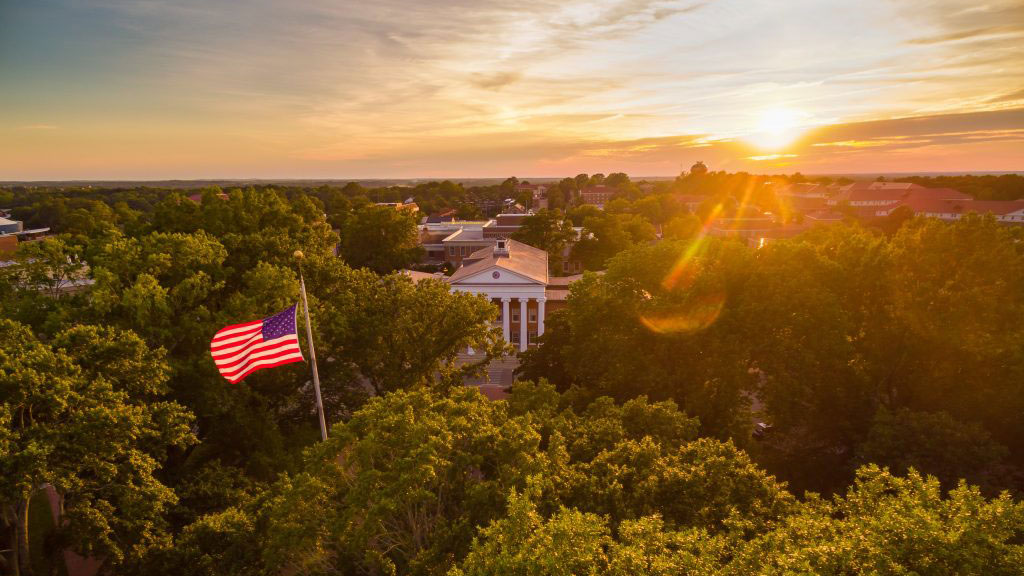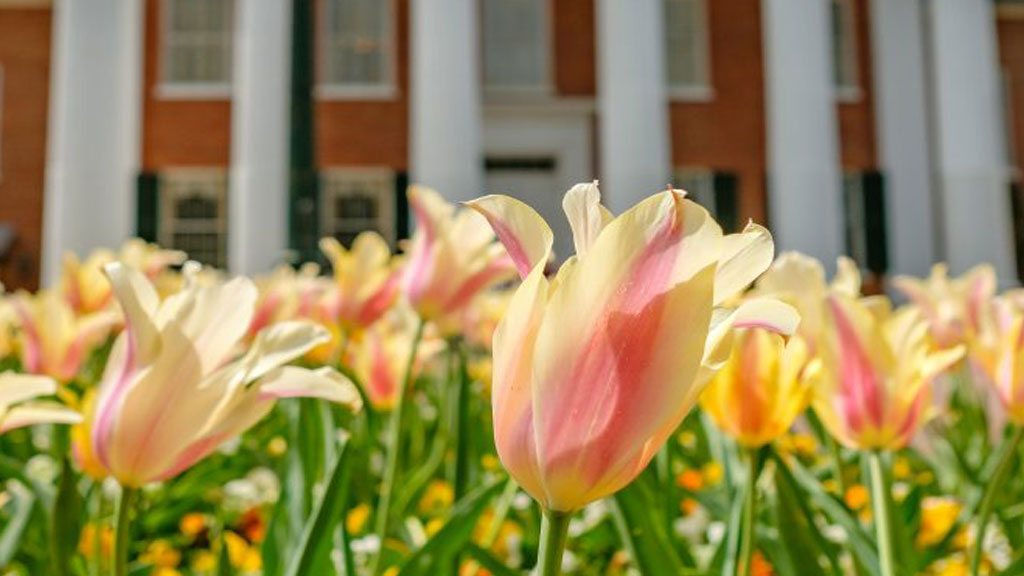Kandice Bailey relies on family to reach School of Medicine graduation
Kandice Bailey once believed she would be a champion for people in the courts as a lawyer; then she realized she could be the same in the clinic as a doctor.
For Bailey, a fan of reality shows with straight-talking judges, medicine eventually overruled law for many reasons, not least of which was a real-life drama with her grandfather at center stage.
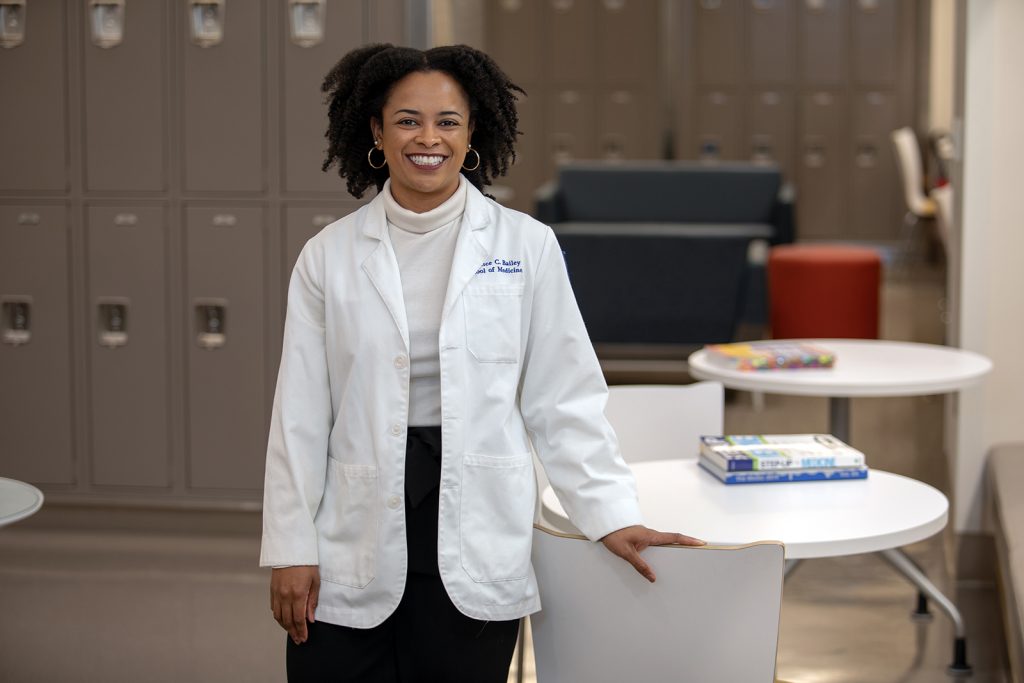
“During his long illness, my grandfather went to some bad doctors, who ignored him and wrote him off because he had dementia; it was as if he wasn’t even there,” said Bailey, School of Medicine class of 2020 at the University of Mississippi Medical Center.
“But he also had some good doctors, who talked to him and treated him with respect; I learned from them that a patient is not defined by his disease.
“Seeing the impact this kind of care had on me and my family, being aware of the health disparities many people like my grandfather face, I realized that becoming a physician was not just something I wanted to do; it was something I had to do.”
Among those touched by the “good doctors’” compassion was Bailey’s older, and only, sibling, Dr. Summer Bailey, a 2016 graduate of the School of Medicine at UMMC.
The Bailey sisters are not the only physicians in the family. The first is also a cable TV star: Dr. Jacqueline “Jackie” Walters of Atlanta, a mainstay of Bravo’s unscripted program, “Married to Medicine,” a 1993 School of Medicine alumna, an OB-GYN and Bailey’s mom’s younger sister.
“I’ve always admired my aunt,” Kandice Bailey said, “her work ethic and personality. She was really our second mom. Whenever we had a problem or just needed to talk, we went to our mom first, but our second call was to Aunt Jackie.
“She has that you-can’t-knock-me-down attitude, which I get from my parents as well.”
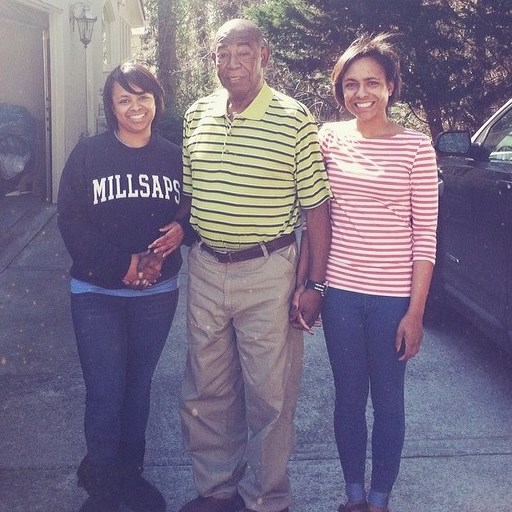
Her parents, Curtis and KaSandra Bailey, brought up their daughters in “super rural” Lorman, where the family also raised cows.
“Once they have a goal in mind, they get it done,” said Bailey, a graduate of Cathedral High School in Natchez and Millsaps College. “I try to be like them: If I want to do something, you can tell me I can’t, but I’m going to do it anyway.”
But there was a time, very recently, when her nerve and confidence failed her.
One of 143 medical school graduates who matched for specialty training, Bailey said that, while on the interview trail for her residency, she was overwhelmed by the qualifications of others competing with her for the coveted dermatology spots. “I found myself questioning whether or not I even stood a chance,” she said.
Dr. Robert Brodell, however, did not. It was Brodell, chair of dermatology at UMMC, who “kept me going in medical school,” Bailey said.
“He steered me the right way. Even when I would email him frantically at midnight, I would get a response by 12:10. I enjoyed the internal medicine and pediatrics rotations, but the area that always kept me guessing and excited was dermatology.”
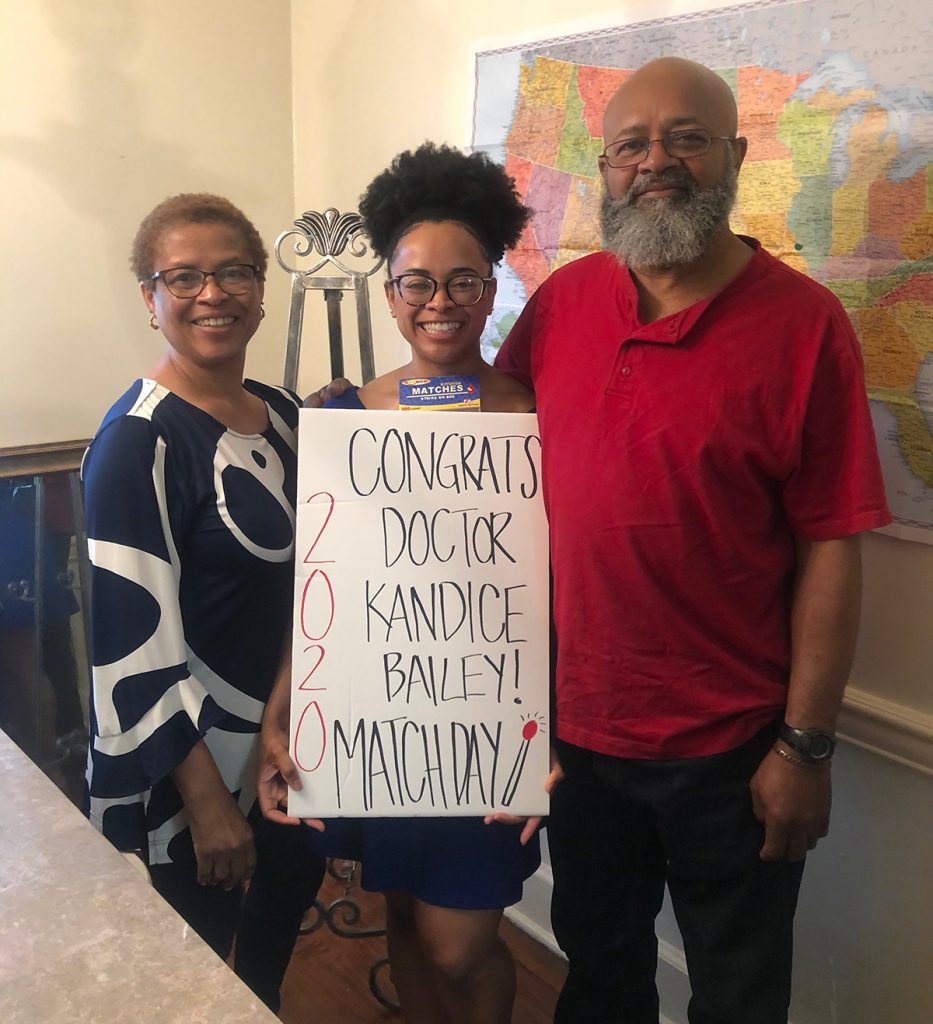
To hear Brodell tell it, dermatology should be excited about Kandice Bailey. “She will be a great dermatologist,” he said.
He saw this early on when Bailey planted her thoughts firmly on Terra firma-forme dermatosis, investigating the benign skin disorder in a paper accepted for publication within months.
“She worked diligently on the project and was soon assigned to me in the American Academy of Dermatology Minority Mentorship Program,” Brodell said. “African Americans are underrepresented in the field of dermatology. Kandice’s decision to seek out mentoring early in her medical career was very smart.”
It put her in a great position to secure her dermatology match, he said. Apparently, he was right: Bailey will do a preliminary year in internal medicine at UMMC before leaving for St. Louis for her dermatology residency at Washington University’s Barnes-Jewish Hospital, the place where Brodell trained.
“Recruiting Kandice to dermatology, and seeing her choose my residency alma mater, has been a thrill for me,” he said.
Before she leaves for Missouri, Dr. Sharon Douglas, another of Bailey’s faculty mentors, would like to make a statement. “She better come back to Mississippi,” said Douglas, professor of medicine and associate dean for coordination of education for Veterans Administration education at UMMC.
“She is absolutely the kind of doctor we need here.
“She is one of those students I will never forget, and I will miss. She is loved by patients and respected by classmates and teachers. Everything she has tried to accomplish, everything she has applied for, she has done. Dermatology is one of the hardest specialties to match.”

For a while, Bailey wasn’t sure she would. “I would get so discouraged by another applicant’s experience, I would think, ‘I might as well not even hope for this one,’” she said.
“It didn’t dawn on me at first, but I was experiencing imposter syndrome.” Bailey suspects that, at one time or another, all medical students face these feelings of self-doubt.
But this was a first for her. Knowing this sensation of insecurity could sabotage her chances on the interview trail, she decided to conquer it.
She had to remind herself that receiving interview invitations alone proved her merit, she said, that getting that far spoke for itself. “I had to remember that I bring something valuable to the table no one else does.” Her you-can’t-knock-me-down attitude won the day.
That would not surprise Douglas. “Kandice comes from a great family,” she said. “They instilled in her the values that are perfect for a doctor.”
You might say those values are the reason she became a doctor. Certainly, her grandfather’s life was an example for her. “He was just a rock,” she said.
For Summer and me, he was our biggest cheerleader when we were growing up – even when we did something wrong.”
But the strength of his body did not equal the power of his spirit. Eventually, neither did his mind. He had diabetes, hypertension, high cholesterol, and then he developed dementia. To undergo dialysis, he had to drive, or be driven, to Brookhaven three times a week – more than an hour away, from Lorman.
“With my grandmother, he had to ride on those deer-infested backroads early in the morning, in the dark,” Bailey said. “It wore on him.”
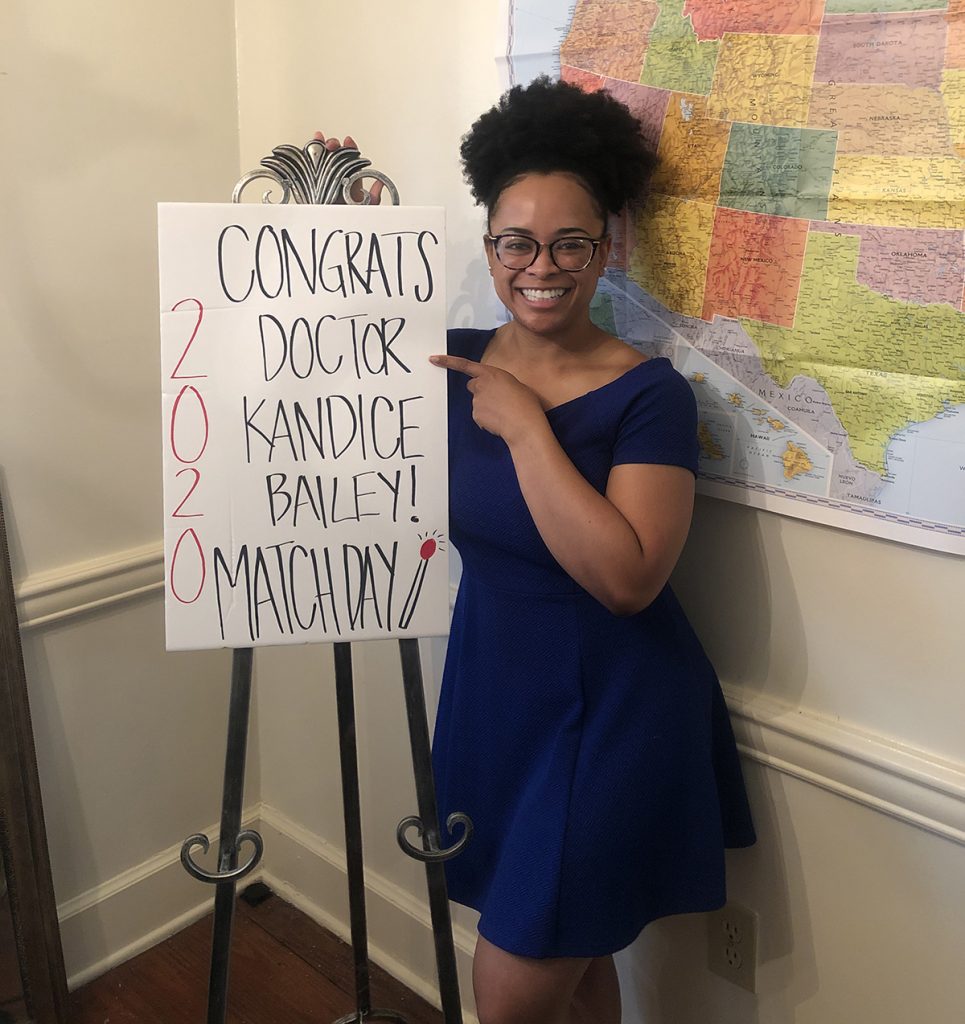
When her grandfather died, in the summer of 2015, Bailey was a senior at Millsaps. “The moment was sudden, but we were all ready for it,” she said. “He had been sick so long.
“Watching his health slowly fade, I believe it showed me and my sister how underserved rural areas are, and the effect it has on the families of those who are sick. You’re watching a person you emulated, admired and loved going from caretaker to someone you’re taking care of.”
Soon, she will be taking care of many more like him. The day, more or less, that she officially becomes a physician is May 22 – the date of her COVID-cancelled commencement ceremony. Like her classmates, not to mention the hundreds of graduates from the half-dozen other campus schools, she won’t be marching toward her diploma in front of thousands of onlookers.
Instead, she’ll be sitting at home, gratefully, with a handful of relatives.
“We’re not going to have that big hooray moment for me and my classmates,” Bailey said. “I’ll miss that. It’s the culmination of everything we’ve done – not just in medical school, but also in college; and some people even have graduate degrees.
“But as my dad said, ‘the prize is the degree.’ The prize is getting to be a part of this profession that so many people dream of doing and one that impacts so many people.
“So, yes, I’m going to be sad for a little while, but I realize I’m still going to be a doctor.”
Story by Gary Pettus/University of Mississippi Medical Center

